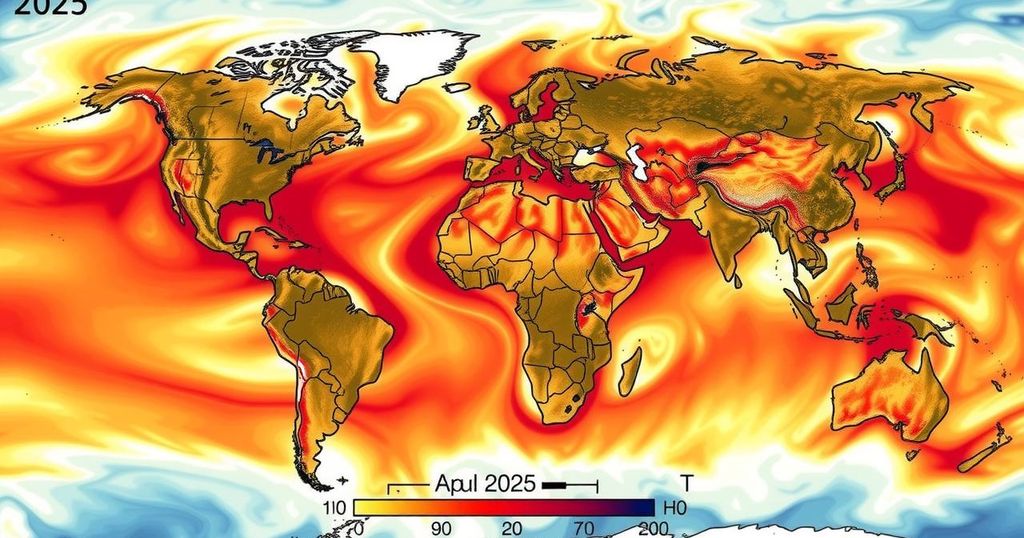Scientists report that 2024 is on pace to become the hottest year on record, exceeding 1.5 degrees Celsius above pre-industrial levels, and the extreme weather linked to climate change will likely continue. Although 2025 may see a slight cooling due to La Nina conditions, the long-term trend of rising temperatures is expected to remain. The urgency for countries to cut emissions is critical, as current levels are projected to hit record highs despite pledges for reduction.
This year is projected to be the warmest on record, with temperatures expected to remain elevated through early 2025, according to European Union scientists from the Copernicus Climate Change Service (C3S). The complete data reveal that 2024 is already exceeding the crucial threshold of 1.5 degrees Celsius above pre-industrial levels, marking a concerning milestone in global climate patterns. This rise is not merely statistical; it corresponds with severe environmental consequences including widespread droughts, devastating floods, and heatwaves resulting in extensive fatalities across various regions.
The alarming climate events include droughts across Italy and South America, inundating floods in Nepal, Sudan, and Europe, and lethal heatwaves in Mexico, Mali, and Saudi Arabia. With 2023 previously holding the record for the hottest year, 2024 has unmistakably changed the climate narrative, showcasing the profound impacts of anthropogenic climate change, as affirmed by scientific analysis.
Despite international commitments to reduce carbon emissions, which are the primary drivers of climate change, 2024 is expected to see record high carbon dioxide emissions. Observers are also speculating about the potential emergence of La Nina conditions next year, which may result in slightly cooler global temperatures; however, these fluctuations would not mitigate the long-term warming trend attributable to human activities. Experts emphasize that even with such a phenomenon, the dangers posed by high temperatures and extreme weather conditions will persist.
In light of these developments, officials and scientists are urging immediate and substantial action to curb emissions and address the increasingly severe impacts of climate change. These warnings highlight the ongoing urgency of addressing climate issues on a global scale, particularly as the situation evolves.
The reference to 2024 as the hottest year on record draws attention to the escalating crisis of climate change. This designation, based on data from the Copernicus Climate Change Service, reflects the growing temperatures resulting from excessive carbon emissions and human activities. With the world experiencing unprecedented extreme weather events, including floods, droughts, and heatwaves, the urgency to address climate change has intensified. The looming potential formation of La Nina conditions in 2025 adds further complexity to future climate predictions, suggesting that although temperatures might temporarily dip, the overarching trend points towards consistent warming due to fossil fuel emissions.
In conclusion, the data indicates that 2024 will surpass all previous temperature records, emphasizing the urgent need for comprehensive climate action. Despite potential cooler conditions in 2025 related to La Nina, experts caution that the threats from climate change will not diminish. The persistent high temperatures and extreme weather events compel governments and organizations worldwide to accelerate efforts in reducing greenhouse gas emissions and preparing for a climate-altered future.
Original Source: www.onmanorama.com







